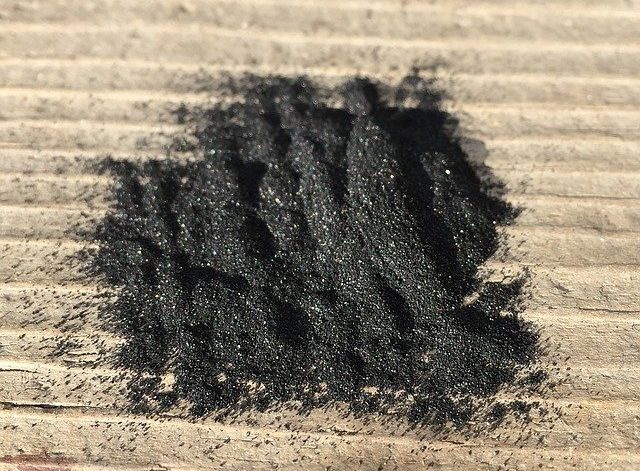INTRODUCTION
Climate change is severely affecting the conditions of soil all around the globe. The increasing rate of soil erosion due to extreme weather events is not appropriate for lands where crops are cultivated. The overall crop production is likely to be decreased by the climate crisis.
Check out: Sustainable Agriculture Practices and their Advantages
WHAT IS BIOCHAR?
Biochar is generally referred to as charcoal that is obtained from a process called pyrolysis. In this thermochemical process, the biomass is converted into biochar in the absence of oxygen. The final product has sufficient carbon content that improves soil health. Read: Soil Erosion and Degradation – Causes, Effects, and Solutions
TYPES OF BIOCHAR
Types of biochar depend on material biomass from which biochar is produced. Primarily, biomass is used for biochar production, it includes different varieties of feedstocks such as urban green waste, animal manure, paper items, rice husks, agriculture waste, etc.
Check out: What is Agroecology? Importance and Impact on Environment
USES OF BIOCHAR
Biochar has multiple uses in soil and could help in tackling the problem of soil infertility due to climate change.
- Enhances Soil Nutrients: Biochar is a natural fertilizer that enhances soil nutrients and prevents them from leaching.
- Promotes Soil Health: Biochar is used to promote soil health by retaining soluble nutrients in the soil.
- Remediation of Soil: Biochar is often used for the remediation of soil suffering from heavy metal pollution.
- Increases Activity of Soil Biota: During unfavorable weather conditions, biochar retains water due to its porous nature and provides nutrients to microbial communities living in the soil.
ADVANTAGES OF BIOCHAR
Biochar has many advantages due to its properties. Because it is a natural product that has fewer negative impacts on the environment.
- Less Emission of Greenhouse Gases in the Air: Biochar is a stable product that could stay in the soil for many years, ultimately reducing the emission of greenhouse gases from the burning of biomass.
- Water Retention: Biochar has moderate porosity that increases the water retention of soil. In this way, it assists soil in growing plants and vegetables.
- Carbon Sequestration: The conversion of biomass into biochar does emit carbon in the air but it is less as compared to the combustion of biomass. Hence biochar represents carbon sink in soil.
- Agricultural Productivity: The application of biochar in the soil increases agricultural productivity and promotes agricultural resilience.
- Reduction in Soil Acidity: One of the main advantages of biochar is it helps in decreasing soil acidity which hinders crop production.
Read about Hydroponics – The Future of Agriculture?
DISADVANTAGES OF BIOCHAR
Although there are many advantages of biochar application in soil, there are some disadvantages as well.
- Limit Activity of Worms in Soil: Due to the application of biochar in soil, the activity of worms reduces which is essential for soil productivity.
- Affect Crop Yield: Biochar does increase agricultural production but it absorbs nutrients causing deficiency of nutrients available to growing plants.
- Soil Compaction: The frequent application of biochar causes soil compaction which in return decreases crop yield.
- Lowers Efficiency of Pesticide: Biochar also affects the application of pesticides hence reducing the efficiency of pesticides in soil.
- Soil Degradation: The application of biochar could lead to soil degradation making soil vulnerable to harsh climates.
Also read: What is Biodynamic Farming? – Methods and Advantages and Biodynamic Farming Benefits and Importance for Environment.
CONCLUSION
Biochar is a product that is produced from biomass through a pyrolysis process. It has numerous uses that improve the soil structure and trigger agriculture production. The characteristics of biochar make it a favorable option to be used during dry weather conditions. Biochar provides moisture to the soil and it could be considered a solution to soil infertility due to climate change.
Also check out: What Are Alternative Fuels? Types, Benefits, and Importance
I hope you all liked this post! Please comment below if you have any suggestions, comments, or feedback! We at #envpk love hearing from our readers! Thanks!





3 Comments
Hi
Very interesting about bio char. I am at present experimenting with bio char production. I would like to find out more about the use of bio char in animal feeds. What ratio is best for the different animals and what are the benifits.
Your kind assistance would be greatly appreciated.
Please subject the descriptions to critical academic review and revise accordingly. They contain errors and misleading half-truths.
Hello sir, would you please point out the “errors” and “misleading half-truths” in the article? As our content writer has written the article according to best of her knowledge and from reliable sources. You are welcome to write a detailed article about biochar on our website to clarify any misconceptions. Thanks!